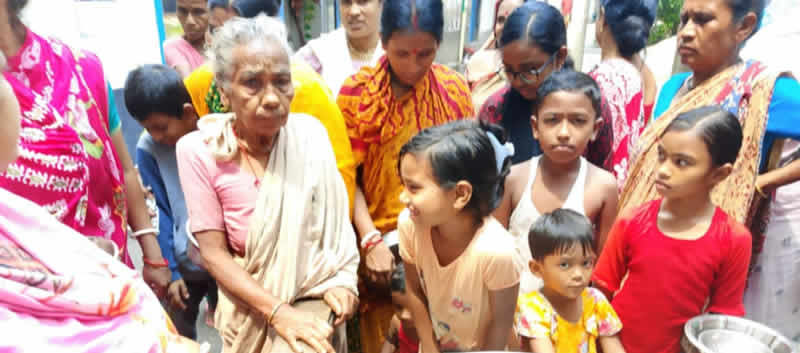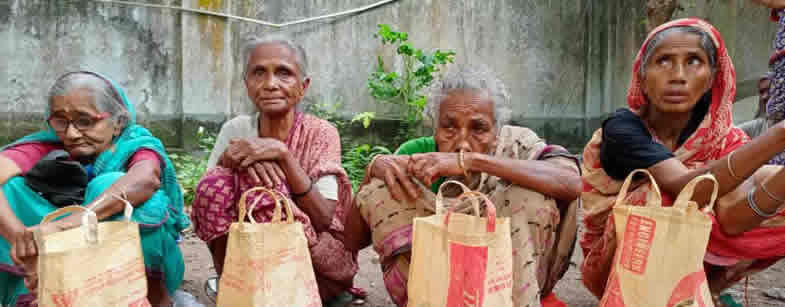Rice Food Aid in Bangladesh: Tackling Food Security for Millions
- Jeffrey Dunan
- Jul 23, 2025
- 5 min read
Updated: Jul 25, 2025
Introduction to Rice Food Aid in Bangladesh
Bangladesh, a country characterized by its lush river deltas and a population exceeding 160 million, has long faced significant challenges related to food security. With a substantial portion of its population living below the poverty line, ensuring access to nutritious food remains a critical national issue. Among staple foods, rice holds a paramount position in the dietary habits of Bangladeshis, serving as the primary source of calories for the majority of the population. However, recurring natural disasters and economic vulnerabilities have exacerbated food insecurity, making rice food aid initiatives an essential lifeline.
In this context, rice aid in Bangladesh has become a vital humanitarian effort to address hunger and malnutrition. Various organizations, both governmental and non-governmental, have stepped forward to bridge the gap. Among these contributors, the Lotus Ministry Trust has garnered recognition for its dedicated work in supplying rice aid in Bangladesh, aiming to alleviate hunger and foster sustainable well-being among vulnerable communities.
The Importance of Rice in Bangladesh’s Food Security
Rice is deeply embedded in the culture and economy of Bangladesh. It contributes more than 30% of the diet’s caloric intake for the average citizen. The majority of rural households depend on rice not only as a food source but also as a primary livelihood through small-scale farming.
Despite Bangladesh's impressive strides in increasing rice production—thanks to advancements in agriculture and favorable monsoon seasons—food inequality remains an urgent problem. Natural calamities such as floods, cyclones, and river erosion constantly disrupt food availability and accessibility. Additionally, economic factors like inflation and unemployment reduce households’ purchasing power, thereby limiting access to essential foods.
Rice food aid, therefore, directly targets the most fundamental nutritional needs by ensuring that vulnerable populations receive sufficient quantities of rice. This support helps stabilize diets temporarily until affected families can regain self-sufficiency.
Lotus Ministry Trust: A Beacon of Support
The Lotus Ministry Trust is a faith-based humanitarian organization committed to serving impoverished communities in Bangladesh. Founded on principles of compassion and social justice, the Trust has focused its efforts on providing essential relief supplies, with rice food aid forming one of its cornerstone services.
Operating through local partnerships and grassroots networks, Lotus Ministry Trust has managed to identify the regions and families most in need. These include destitute households in remote rural areas, displaced families due to riverbank erosion, and food-insecure urban populations struggling amid economic downturns.
By concentrating on rice aid in Bangladesh, the Lotus Ministry Trust ensures that its aid addresses the immediate nutritional requirements while fostering long-term resilience. The Trust’s approach goes beyond mere distribution—it involves empowering recipients through education on nutrition, hygiene, and sustainable practices so that communities can gradually reduce reliance on external food assistance.
Impact of Lotus Ministry Trust’s Rice Aid Programs

The rice food aid programs run by the Lotus Ministry Trust have made substantial impacts across multiple dimensions of community welfare:
1. Alleviating Hunger: Thousands of families have received essential rice supplies, significantly reducing incidences of acute hunger and malnutrition. For many families, the Trust’s rice aid has been the difference between daily meals and empty stomachs during crises.
2. Supporting Vulnerable Demographics: Elderly individuals, pregnant women, children, and disabled persons—groups especially susceptible to nutritional deficits—have been prioritized. The provision of quality rice has contributed to improved health outcomes among these populations.
3. Complementing Government Initiatives: While the Bangladeshi government runs various food assistance programs, resource constraints and logistical challenges often impede coverage, especially in remote and disaster-affected regions. The Lotus Ministry Trust’s interventions complement these efforts, filling gaps and ensuring broader coverage.
4. Community Empowerment: Through integrated programs, including nutritional awareness workshops conducted alongside rice distributions, the Trust has enhanced community knowledge. Empowerment through education helps households manage their food resources more effectively and seek sustainable livelihoods.
5. Disaster Response and Recovery: During natural disasters like floods and cyclones, rapid deployment of rice aid has been a critical emergency response activity. The Lotus Ministry Trust’s ability to mobilize quickly has reduced suffering and facilitated faster recovery.
Challenges in Delivering Rice Food Aid in Bangladesh
In these challenging times, communities affected by crises need immediate support to meet their basic needs. If you feel compelled to make a difference and provide critical assistance, you can help by contributing to ongoing urgent food relief efforts. Your generosity will directly aid vulnerable populations by supplying essential nourishment and hope during periods of hardship.
Despite successes, delivering rice aid in Bangladesh faces several challenges that organizations like Lotus Ministry Trust continuously navigate:
- Logistical Barriers: Bangladesh’s geography, replete with rivers, marshlands, and underdeveloped infrastructure, complicates transportation and distribution of rice to remote or inaccessible areas.
- Population Density and Scale: The sheer number of people facing food insecurity requires a massive scale of aid, which strains resources and necessitates efficient management and prioritization.
- Climate Vulnerability: Frequent floods and cyclones disrupt supply chains and displace populations, creating an unpredictable context for consistent rice aid delivery.
- Sustainability Concerns: While immediate rice aid alleviates hunger, developing mechanisms for long-term food security is essential. Balancing immediate relief with strategies for sustainable agriculture and economic development remains an ongoing pursuit.
- Monitoring and Accountability: Ensuring that rice aid reaches intended recipients without diversion requires robust monitoring, a challenge in sparsely documented settings.
Lotus Ministry Trust actively addresses these challenges by working with local communities, utilizing technology for inventory management, and fostering partnerships with other humanitarian organizations.
The Future of Rice Aid in Bangladesh: Innovations and Hope

Looking forward, rice food aid in Bangladesh is adapting to new realities and opportunities. The Lotus Ministry Trust is at the forefront of adopting innovative strategies to enhance the efficacy and sustainability of rice aid programs:
- Digital Tracking: Employing digital platforms to track distribution and recipient feedback improves transparency and efficiency.
- Local Rice Procurement: Supporting local farmers by procuring rice from local markets helps stimulate rural economies while minimizing logistical complexities.
- Integrated Relief Models: Combining rice aid with livelihood training, microfinance, and health programs creates a holistic approach that addresses the root causes of food insecurity.
- Climate-Resilient Practices: Encouraging climate-adaptive farming and food storage methods ensures that communities can better withstand environmental shocks.
As poverty and food insecurity remain pressing challenges, organizations like the Lotus Ministry Trust continue to inspire with their dedication. Their rice aid initiatives not only provide immediate nourishment but also sow seeds for a more food-secure Bangladesh.
Conclusion
Rice food aid in Bangladesh is more than just an emergency intervention; it is a vital thread in the complex fabric of humanitarian relief, sustainable development, and social justice. The Lotus Ministry Trust exemplifies the compassionate response necessary to address the intertwined challenges of hunger and poverty.
By delivering rice aid in Bangladesh to the most vulnerable populations, the Trust not only fulfills a fundamental human need but also instills hope and dignity. As Bangladesh navigates the path toward food security amid climatic, economic, and social challenges, organizations like Lotus Ministry Trust will remain indispensable partners in building a future where no stomach goes empty and communities thrive on resilience and solidarity.











Comments